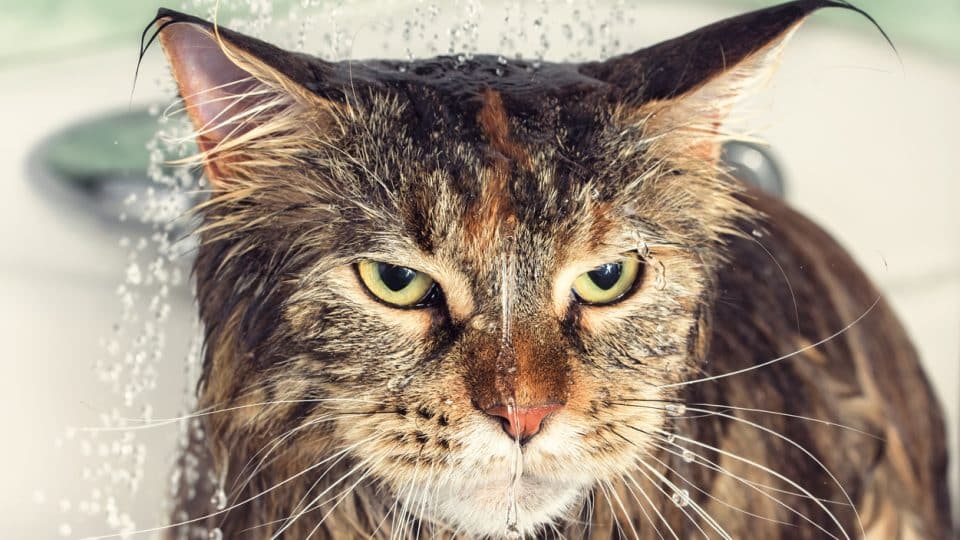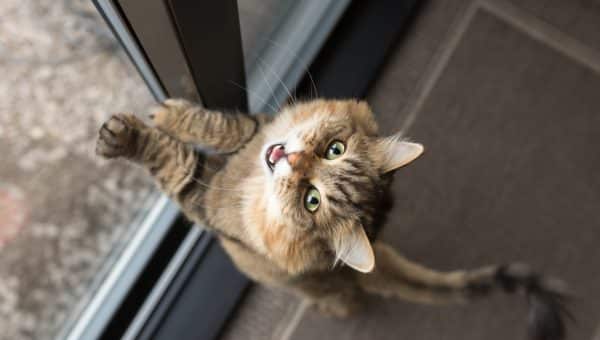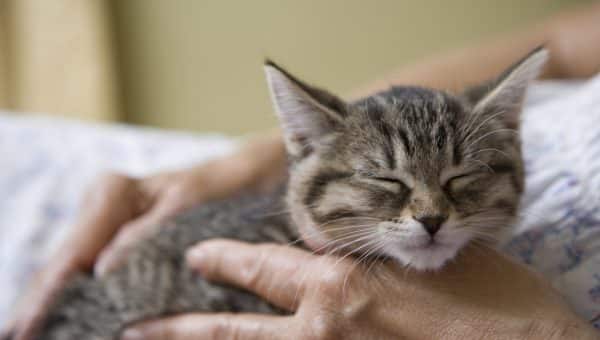If your cat has ever slipped into water and then scrambled out as if they’d fallen into a pool of lava, you might be forgiven for thinking they’re big-time drama queens.
With such extreme reactions, it’s hardly surprising that felines are generally considered water-averse animals. But it’s not because they’re being fussy or overdramatic: cats don’t like getting wet for reasons ranging from evolutionary needs to comfort.
However, while it’s true that most felines aren’t water babies, not all cats dislike water. Some breeds dislike water more than others, while other cats don’t mind getting splashed at all.
Fortunately, their self-grooming regimen means cats don’t need bathing very often—so both you and your cat can breathe a sigh of relief!
Grab your goggles: it’s time to dive into why (many) cats don’t like water.
They Don’t Like Feeling Wet
Ever stepped out of the shower only to find your towel is nowhere to be seen? Being left soaking wet, chilly, and dripping is far from pleasant. And your cat can feel similar levels of discomfort when they get wet.
“A cat’s fur is not designed to repel water,” explains Molly DeVoss, a certified feline training and behaviour specialist (CFTBS), certified cat behaviour consultant (CCBC), and founder of non-profit Cat Behavior Solutions. As such, “it takes a long time to dry and becomes heavy when wet.”
Comfort isn’t the only reason why felines don’t like being weighed down by heavy, wet fur: they have an evolutionary need to be nimble and quick off the mark.
“By nature, a cat prefers to be ready to flee any potentially dangerous situations, and when their coat is wet, it makes that more difficult,” notes DeVoss.
They Evolved Away From Water
While some animals are innately designed to be in and around water, cats are the opposite.
Domesticated felines have their origins in the hot, humid conditions of the Middle East, where water sources such as lakes and rivers are scarce. DeVoss affirms that “cats evolved in dry climates and didn’t have much exposure to water.”
This means that when they are exposed to water, it can come as more of a shock than it might to other animals who have evolved to be around it.

Angelika | iStock
They Can Smell Chemicals In The Water
There are numerous smells cats really don’t like. And strong scents in the water—such as from treatment chemicals—can be highly off-putting to them.
For example, we all recognise the distinct smell of chlorine in swimming pools, and this odour can be overwhelming for cats. According to FirstVet, felines have up to 200 million receptors in their noses. In comparison, humans have around six million!
Let’s be honest: if you thought you were about to fall into a large pool of something foul-smelling, you’d be keen to scarper ASAP, too.
They Had A Prior Negative Experience In Water
Humans can develop fears or phobias around certain things if they’ve previously had a bad encounter with them—and felines are no different.
“Trauma associated with water at any point in their life can turn them off to it,” reveals DeVoss. Perhaps your cat got into trouble after falling into the bath or a pool when they were a kitten and now fears the same will happen again?
If you get your cat as a kitten, taking the time to slowly and carefully introduce them to bathtime can have long-lasting benefits.
“If you regularly expose a kitten to water in a safe, comfortable way at a young age, they will be much more comfortable with it as an adult cat,” DeVoss says.
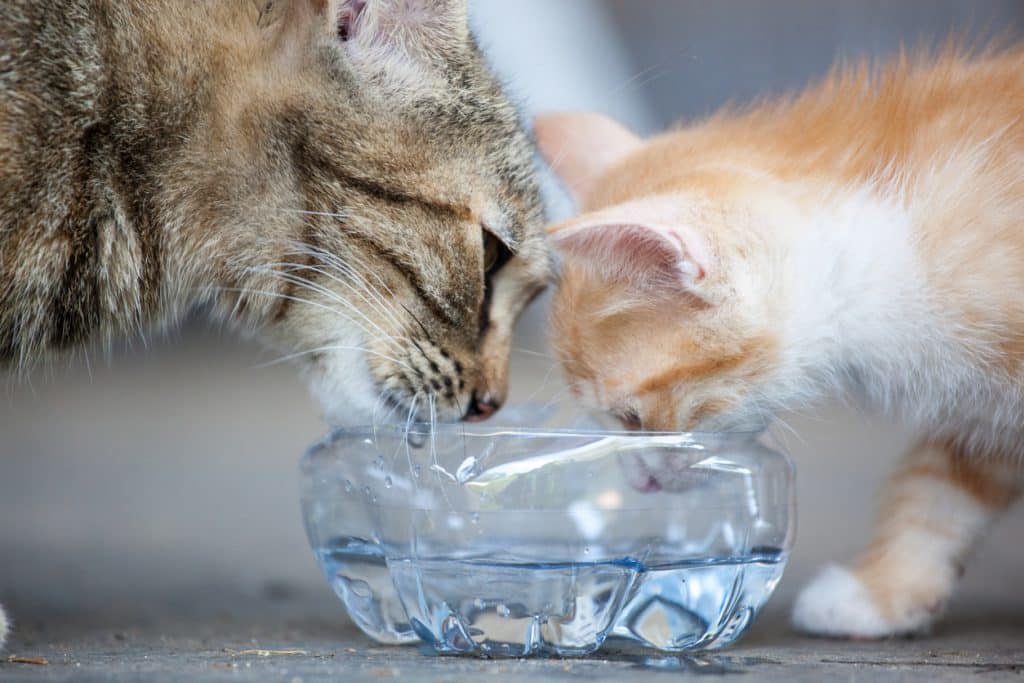
lopurice | iStock
They Feel Out Of Control In Water
In some situations, being in water can make us feel (both literally and figuratively) out of our depth—and the same applies to cats.
With their honed hunting techniques and scent-marking behaviours, cats have in-built mechanisms to help control their environment. “The feeling of being in control is key to a confident cat,” states DeVoss.
“If they don’t feel in control, they become easily frightened,” she continues. So, if your kitty doesn’t feel in charge while in the water, they’re likely to become distressed.
Do Any Cats Like Water?
If you have a cat that doesn’t mind bathtime, it might be due to its breed.
“There are specific breeds who are more likely to enjoy getting wet,” explains DeVoss. “A couple of those are the Maine Coon and Turkish Van.”
According to The Cat Fanciers’ Association, other breeds that don’t mind being in water include Siberian, Sphynx and Bengal. Meanwhile, Purina notes that Turkish Angora and Manx cats also like having a splash.
If your cat doesn’t like being doused in water, it doesn’t mean they hate this element altogether. On the contrary, many felines are mesmerised by running taps and water fountains. But why? Some believe the sound and sight is appealing (and playful) to them, and that cats consider these smaller amounts of water to be safer.
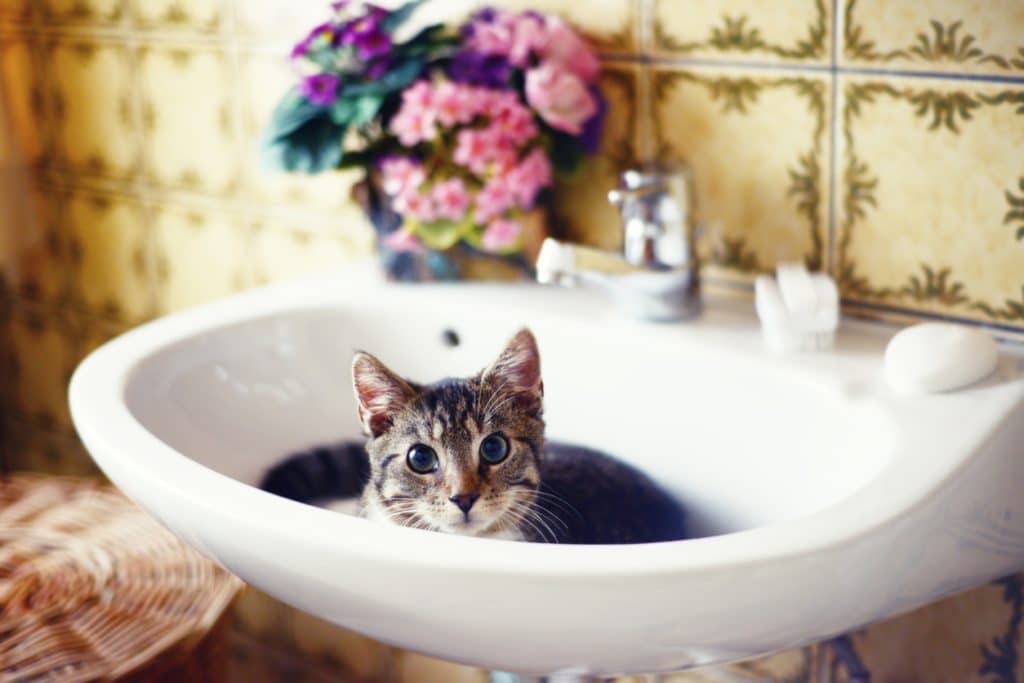
hsvrs | iStock
Should I Bathe My Cat?
Cats are regular self-groomers, using their tongues to remove dirt from their fur and keep it looking nice and shiny. They can spend up to 50% of the time they’re awake grooming! (However, licking to the point of creating bald spots is a sign of over-grooming and something to speak to your vet about.)
But a helping hand is sometimes needed. Perhaps they’re coated in excess mud or an unpleasant smell after an outdoor misadventure, or they’ve an infection such as fleas or ringworm. Overweight or older cats might also have trouble reaching some areas of their coat.
It’s best to bathe a cat in a smaller space, such as the sink, filled with a few inches of warm water. Once you’ve got this ready, it’s time to get started.
- Gently hold your cat by the scruff of the neck.
- Fill a mug with warm water and pour this over your cat’s body until all the fur is wet. The American Society for the Prevention of Cruelty to Animals (ASPCA) recommends avoiding wetting the head and using cotton wool to help prevent water from getting into the ears.
- Use a specific cat shampoo to carefully lather up their coat.
- Rinse off the shampoo, making sure there’s none left.
- Using towels (not a hairdryer), gently dry your cat. You might need to comb kitties with longer fur, too.
- Give your bathtime hero a treat!
If your cat’s face or head needs attention, the ASPCA suggests using a washcloth dampened with water to carefully wipe things off.
Takeaway
While it’s true that many cats dislike being in water, there are some for which this isn’t the case. A feline’s breed can play a big part in whether they have an affinity, as can their early experiences.
Even if you have a breed of cat that isn’t typically considered a fan of water, did you know you might be able to train them to enjoy a splash around? “You can train a cat to do pretty much anything (they want to do)!” asserts DeVoss.
If you want to try this, make sure the water you use is relatively warm (but not scalding). DeVoss explains that a cat’s body temperature sits at around 102 degrees Fahrenheit, while a human’s is about 98 degrees. This means that “a cat isn’t going to enjoy lounging in your warm bath water—they will think it’s too cold.”
It’s essential to build positive associations with water, too. “Conditioning their response with something great happening simultaneously to the scary or new thing is key to them liking it,” shares DeVoss. “I find the Vitakraft Lick ‘n’ Lap treats particularly appealing for this because you can dab a little on the counter for them to lick while you are using your hands to soothe.”
Just as you might not take to an activity, cats can be the same. So don’t force your feline into doing something if they’re resisting or it is causing them distress. Remember that professional groomers are always on hand to help if bathtime feels more like a battlefield!
